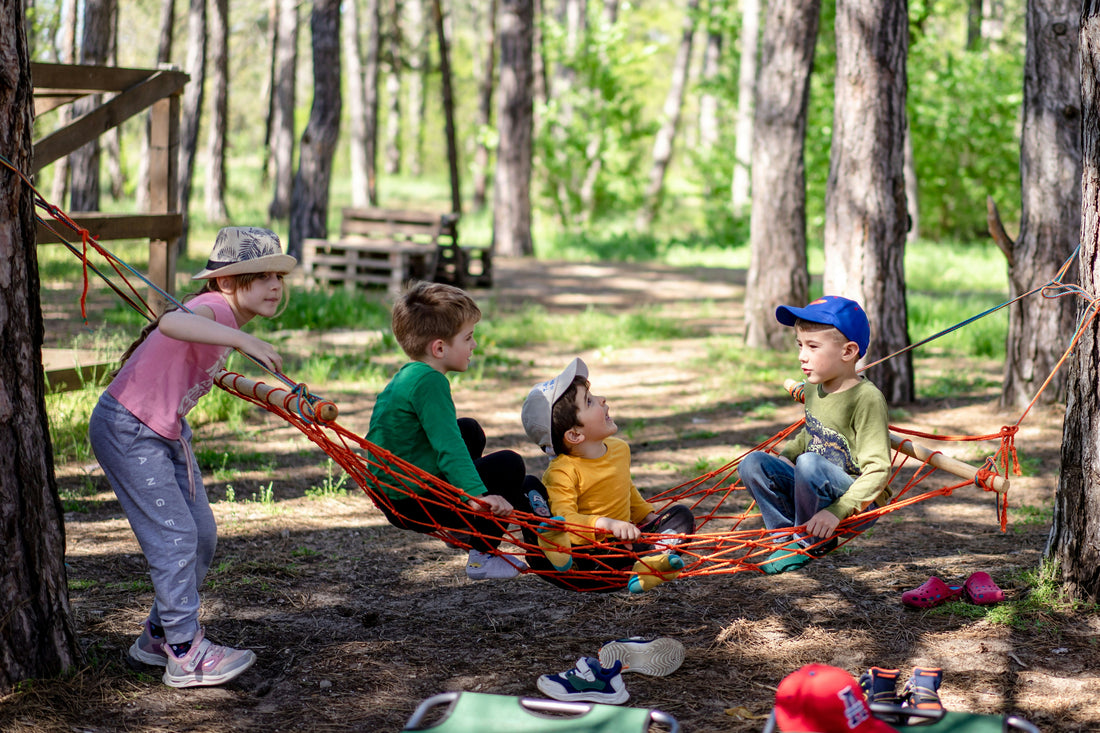
Essential Tips for Camping with Kids: Stress Less, Enjoy More
Share
Camping with kids is an adventure filled with excitement, learning, and memories—if you plan thoughtfully. Whether you’re a first-timer or a seasoned camper, knowing what to expect and how to prepare can make outdoor trips with children smoother and much more enjoyable.
Plan Ahead for a Smooth Experience
Preparation is key to a successful camping trip with kids. Start by choosing a family-friendly campsite that offers clean facilities, child-safe play areas, and nearby attractions. Research the site’s amenities, local weather, and available activities.
- Reserve your spot early; popular sites fill quickly.
- Pack age-appropriate gear and clothing.
- Prepare a list of essentials, adapting for infants, toddlers, or older kids.
- Share the itinerary with everyone, so kids know what to expect
Keep Packing Simple but Comprehensive
Packing for camping with kids can feel overwhelming, but focusing on a balanced checklist helps. Begin with basics: seasonally suitable clothes, sleeping gear, toiletries, and first aid supplies.

- Include nightlights or headlamps—darkness can be intimidating.
- Bring comfort toys or pillows for familiarity.
- Prepare a “just-in-case” kit with bandages, allergy medication, and insect repellent.
- Sturdy, slip-on shoes help with bathroom runs at night.
Remember, less is often more. Kids enjoy the simple joys of nature without a barrage of gadgets.
Make Meals Easy and Enjoyable
Feeding a family outdoors can be straightforward with the right approach. Plan simple, hearty meals that don’t require complicated preparation. Get kids involved in meal prep for a fun, hands-on learning experience.

- Opt for easy-to-assemble foods like sandwiches, wraps, or foil packet meals.
- Gustatory favorites like marshmallows or popcorn cooked over a campfire boost excitement.
- Always have snacks—granola bars, dried fruit, or trail mix stave off crankiness.
- Stay hydrated with plenty of water.
Cleaning up together after meals instills responsibility and keeps the site inviting for everyone.
Embrace Nature—and Keep Kids Engaged
Keep boredom at bay by letting curiosity lead the way. Nature naturally entertains, but having a few structured activities in your back pocket helps during slower moments.
- Go on nature scavenger hunts.
- Bring a magnifying glass for insect investigations.
- Create art from leaves, stones, and twigs.
- Have a field guide handy for birds or plants.
Rainy weather? Keep a small kit of lightweight games, notebooks, or cards handy for downtime in the tent.
Prioritize Safety at Every Step
Outdoor adventures become even more rewarding when safety is considered from the start. Before heading out, establish some ground rules with your children and explain the importance of boundaries and listening closely.
- Set clear limits for exploring the campsite.
- Teach kids to recognize campsite landmarks.
- Equip children with whistles, and teach them what to do if they get separated.
- Apply sunscreen and bug spray as needed, and supervise all campfire activity.
Supervision doesn’t have to be constant helicopter-hovering, but gentle vigilance ensures everyone returns home happily.
Foster Independence and Enjoy Teachable Moments
Camping with kids is an ideal setting for learning self-reliance. Let them handle age-appropriate tasks, like collecting firewood, setting up gear, or tidying up their sleeping space. Encourage problem-solving and curiosity, even if it means a slower pace.
- Assign each child a daily responsibility.
- Encourage exploration under supervision.
- Share basic wilderness skills, such as map reading or safe fire-building.
- Be patient with mistakes—they’re opportunities to grow.
Kids who help out feel more invested and proud of their contributions, and your trip becomes a collaborative, memory-making adventure.
Create a Comfortable Sleeping Environment
Quality sleep can make or break outdoor adventures. Choose sleeping bags suitable for the overnight low temperatures, and layer clothing for extra comfort.
- Use sleeping pads or inflatable mattresses for insulation and coziness.
- Keep favorite blankets or stuffed animals close by for emotional security.
- Stick to familiar bedtime routines whenever possible.
If little ones feel secure and rested, everyone wakes up ready for another day in the wild.
